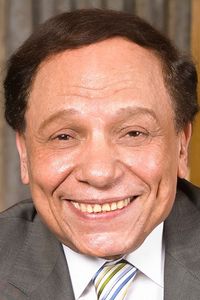Adel Imam is a renowned Egyptian comedic actor, widely regarded as one of the most iconic figures in Arab cinema, with a career spanning over six decades. Born on May 17, 1940, in Mansoura, Egypt, he relocated to Sayyed Zeinab at an early age, where he spent most of his childhood.
Imam pursued higher education at the University of Cairo, where he earned a bachelor's degree in agriculture, but his true passion lay in college theatre productions. He joined a television troupe in 1962, while still a student, and began starring in TV plays, including "Ana wa Howa wa Heya" (He, She and I) and "Al Nassabin" (The Swindlers),which premiered at the Al Hakim Theater.
Throughout the years, Imam acted in numerous well-received plays, such as "Al Bijamma Al Hamra" (The Red Pajamas),"Fardet Shamal" (Left Shoe),and "Gharammiyat A'feefy" (A'feefy's Love Affairs). In the 1970s, he starred in the hit play "Madrassat Al Mashaghbeen" (Mischief at School),which ran from 1971 to 1975.
Imam continued to thrive, starring in "Shahid Mashafsh Hagga" (The Witness Didn't See Anything),which screened for seven years, followed by "Al Wadd Sayyid Al Shaghal," which premiered in 1985 and ran until 1993. His extensive career, spanning over 50 years, has earned him the reputation of having one of the longest acting careers in Egyptian cinema.
More recently, Imam starred in "The Yacoubian Building," adapted from Alaa Al-Aswany's celebrated novel, a poignant piece of social commentary that holds the distinction of being the highest-budgeted film in Egyptian cinema history.
In 2012, an Egyptian court convicted Imam for defamation of Islam, specifically targeting his films "Al Irhabi" (The Terrorist) and "Al Zaeem" (The Leader),in which he satirizes Arab autocratic rulers. However, Imam won his appeal against the conviction. In 2000, the United Nations named him a Goodwill Ambassador for UNHCR, in recognition of his humanitarian efforts.
























